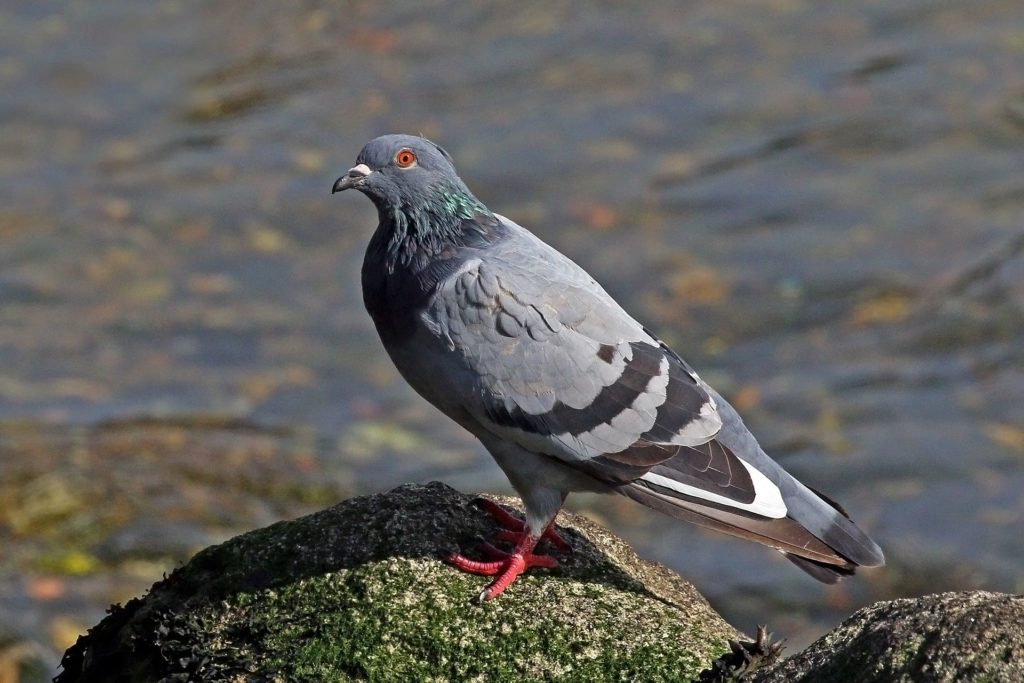
Kentucky’s laws and regulations concerning pigeon trapping are a crucial aspect of wildlife management and conservation in the state. Understanding these regulations is essential for those involved in pigeon trapping activities, whether for sport or pest control purposes. While some of these laws may seem straightforward, there are nuances that every individual engaged in pigeon trapping should be aware of to avoid potential legal repercussions. It is essential to be well-informed about the specific requirements and restrictions in place, as they not only impact the trapping methods but also carry potential legal and financial consequences for non-compliance. Understanding the legal framework around pigeon trapping in Kentucky is crucial for anyone involved in such activities.
Kentucky State Regulations on Pigeon Trapping
Kentucky enforces strict regulations on pigeon trapping to ensure compliance with state hunting laws and the protection of migratory pigeons, including the Mourning doves, under the Migratory Bird Treaty Act. For hunting pigeons in Kentucky, a mandatory hunting education course and a hunting license are required. Additionally, hunters must wear bright clothing, preferably blaze orange or pink, to ensure visibility while hunting pigeons. The state has specific hunting regulations and laws for wildlife damage control to protect the wildlife population. Permit requirements and restrictions are also in place for the transportation, possession, and propagation of native wildlife in Kentucky.
According to Kentucky state regulations, no person shall hunt migratory birds without a valid migratory game bird hunting permit. This permit is essential for hunting migratory game birds, including mourning doves and other pigeons. It is crucial for hunters to adhere to these regulations to ensure the conservation and protection of the migratory bird population in Kentucky. By following these regulations, hunters can enjoy pigeon trapping while also contributing to the preservation of these migratory bird species.
Permits and Licensing Requirements for Pigeon Trappers
Trappers seeking to engage in pigeon trapping in Kentucky must ensure they possess the appropriate permits and licensing as mandated by the state regulations. This includes obtaining a hunting license, as pigeons are considered game birds in Kentucky. Trappers are also required to comply with the regulations outlined in the Migratory Bird Treaty Act, which governs the harvesting of migratory birds, including pigeons. Additionally, a trapping license may be necessary, depending on the specific requirements set forth by the Kentucky Department of Fish and Wildlife Resources. It is important for trappers to complete a hunting education course and obtain the necessary licenses before engaging in pigeon trapping to ensure compliance with state laws and regulations.
| Permit/License | Description | Requirement |
|---|---|---|
| Hunting License | Required for harvesting game birds, including pigeons, in Kentucky. | Mandatory for pigeon trappers in Kentucky. |
| Trapping License | May be necessary based on the specific requirements set forth by the Kentucky Department of Fish and Wildlife Resources. | Depends on state regulations. |
| Migratory Bird Treaty | Governs the harvesting of migratory birds, including pigeons, in compliance with federal regulations. | Must be followed by pigeon trappers. |
Restrictions on Pigeon Trapping Methods
Restrictions apply to the methods used for trapping pigeons in Kentucky, with specific regulations governing the process. The Kentucky Department of Fish and Wildlife Resources oversees the trapping of wild birds, including pigeons, on private land during the designated hunting season. Trappers must obtain a hunting permit and adhere to the hunting laws and regulations set by the department. It is illegal to trap migratory pigeons, such as Mourning doves, off-season. Trappers are required to complete a mandatory hunting education course and obtain proper licensing before engaging in pigeon trapping. Additionally, specific clothing regulations must be followed, including wearing bright clothing to ensure visibility, and using only permitted hunting weapons. The U.S. Fish and Wildlife Service enforces laws related to wildlife protection, management, and pigeon trapping methods to ensure the ethical and sustainable treatment of wild bird populations. Trappers are encouraged to familiarize themselves with all relevant laws and regulations before engaging in pigeon trapping activities to promote the responsible and legal pursuit of this activity.
Enforcement and Penalties for Violating Pigeon Trapping Laws
Stringent penalties are imposed for violating the laws related to trapping pigeons in Kentucky. The state laws governing pigeon trapping are enforced by wildlife authorities to ensure the protection of local pigeon populations and their habitats. Enforcement of these laws is taken seriously, and individuals found in violation may face severe consequences. Penalties for violating pigeon trapping laws can include substantial fines, confiscation of trapping equipment, and even potential imprisonment. It is essential for individuals engaging in pigeon trapping to obtain the necessary permits and licenses, as failure to do so can result in legal repercussions. Compliance with hunting regulations and adherence to the specific guidelines for pigeon trapping are crucial to avoid facing enforcement actions and penalties. By upholding these laws, individuals play a vital role in conserving the pigeon population and preserving the natural balance within Kentucky’s ecosystems. Adhering to the enforcement and penalties associated with pigeon trapping laws is integral to promoting responsible and sustainable wildlife management practices.
Legal Considerations for Pigeon Trapping on Private Property
Legal considerations for pigeon trapping on private property in Kentucky encompass adherence to hunting regulations and requirements for obtaining necessary permits and licenses. When engaging in pigeon trapping on private property, individuals must be aware of the following legal considerations:
- Hunting Regulations: Individuals must comply with all state and federal hunting regulations when trapping pigeons on private property. This includes obtaining the appropriate hunting license and permit as required by Kentucky law.
- License and Permit: Hunters need to obtain a valid hunting license and any necessary permits for pigeon trapping. Compliance with licensing and permitting requirements is essential to ensure legal hunting practices.
- Endangered Species: It is crucial to be aware of any endangered species regulations that may impact pigeon trapping activities. Hunters must avoid trapping or harming any species listed as endangered or protected within the United States.
- Legal Hunting: Pigeon trapping must be conducted within the bounds of legal hunting practices. This entails following all relevant laws, obtaining the required permissions, and conducting activities in a safe and responsible manner.
Understanding and adhering to these legal considerations is essential for individuals engaging in pigeon trapping on private property in Kentucky. By ensuring compliance with hunting regulations and legal requirements, individuals can partake in pigeon trapping activities responsibly and lawfully.
Frequently Asked Questions
Do You Need a License to Trap in Kentucky?
Yes, a hunting license is required to trap in Kentucky. License requirements are enforced to ensure compliance with trapping regulations, wildlife management, and conservation efforts. Ethical trapping practices are emphasized to protect migratory birds and their habitats.
Can Game Wardens Enter Private Property in Kentucky?
Game warden authority in Kentucky allows for entry onto private property without a search warrant if there’s probable cause of hunting or trapping law violations. This power aims to ensure compliance with regulations and safeguard wildlife, balancing private property rights with legal boundaries.
Can You Hunt on Your Own Land in Ky?
Hunting rights on privately owned land in Kentucky are afforded to property owners, subject to land regulations and wildlife management laws. Ethical hunting practices should be observed to ensure compliance with state and federal regulations.
What Birds Can You Hunt in Kentucky?
In Kentucky, bird hunting is regulated by specific hunting seasons and bag limits. The state’s regulations adhere to the Migratory Bird Treaty Act, protecting migratory birds and ensuring bird conservation through hunting regulations.
